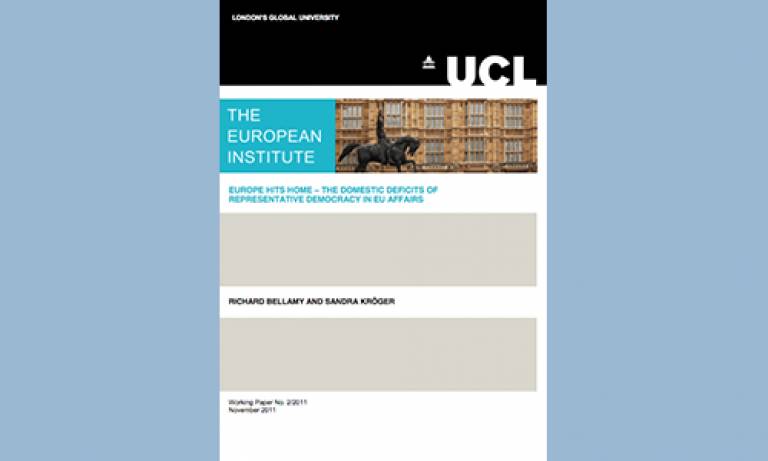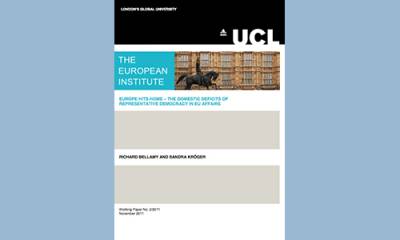The EU Hits Home: The Domestic Deficits of Representative Democracy in EU Affairs
1 November 2011

Ever since the problematic ratification of the Maastricht Treaty and the accompanying debate about a democratic deficit of the EU, politicians – rather more than scholars – have sought to strengthen the role of national Parliaments in EU policy-making. Accordingly, a legally binding Protocol on the role of National Parliaments in the European Union was added to the Amsterdam Treaty, which entered into force in 1997. The Protocol accorded parliaments the right to receive information on EU affairs, demanded that there be a six week period between issuing a legislative proposal and its adoption by the Council, and introduced rules for the cooperation between national parliaments and the European Parliament (EP). How far, and in what ways, parliaments took advantage of these new rights and provisions was largely left up to them.
The Lisbon Treaty marks a step change in this respect. Not only is it the first EU Treaty even to mention national parliaments in the main text, but also it gives them a potentially significant legal status in the democratic governance of the EU. In making this change, Member States have indicated that parliaments possess certain key democratic competences which should and possibly could not be assumed by the EP. For example, it has been the 17 national parliaments of the euro zone rather than the EP that have been the crucial sources of democratic legitimacy for the response of Member States to the Euro crisis.
This paper explores whether these domestic representative institutions are capable of living up to the normative role assigned to them and argues that to a degree that capacity has been eroded by the very process of European integration they are now supposed to control.
Authors:
Professor Richard Bellamy (UCL), Dr Sandra Kröger (Exeter)
The Working Paper Series
Launching a new series of discussion and working papers in 2011-12, the European Institute is commissioning article-length research papers from UCL and external scholars specialising on Europe and the European Union.
Often, these will have grown out of, or provided input into, public panel discussions and workshops organised by the Institute. Part of the argument developed in Working Paper 2 was first rehearsed during a workshop in December 2010 with members of parliament, legal counsel and several academic experts on the role of National Parliaments post-Lisbon. It was organised by the Institute in cooperation with the Embassy of Belgium to the UK on the occasion of the Belgian Presidency of the EU.
 Close
Close


